UNITED NATIONS , Apr 29 (APP):The World Health Organisation (WHO) on Wednesday announced that a United Nations-led initiative to
secure coronavirus medical supplies for countries in need, is underway.
The COVID-19 taskforce initiative follows a direct request to WHO from UN Secretary-General Antonio Guterres to coordinate the Organization’s response to the coronavirus pandemic.
It comes amid unprecedented global shortages of critical supplies, skyrocketing prices and export
bans, Paul Molinaro, Chief, Operations Support and Logistics, WHO Health Emergencies Programme,
said in a statement.
“The demand has obviously increased in those markets 100 or 200 times normal demand”, he told
journalists via video conference from Geneva.”On the supply side we saw a lot of shutdowns in
manufacturing, we saw a lot of export controls, we saw the international air transport system
on which we’re quite dependent for the movement of cargo, gradually shut down, so we’re at the
point where we need to look for solutions to this.”
As part of the collective effort by the UN and public and private partners, a dedicated ‘COVID-19
Supply Portal ‘ is set to launch within days, offering countries the opportunity to submit supply
requests via a single platform.
This will enable the humanitarian supply chain system “to plan and coordinate allocation of critical
supplies” to those 135 countries deemed to be most vulnerable, WHO said in a statement. “We need
to streamline demand at country level to really look at the highest priority and to try and get the numbers
to something manageable and coordinated,” Molinaro said, highlighting the first of the initiative’s four
priorities.
“Step two is collaborative procurement amongst ourselves in the UN and some of our key partners in approaching the market together. This gives us a bigger voice, particularly in a constrained market with
a lot of intense competition”, he added.
“The third part is allocation process based on vulnerabilities and gaps and on critical needs. And then
the fourth step – in light of difficulties with transportation – is to create a unified transport system, and
this is something our partners are currently doing, particularly WFP.”
To date, it has distributed 1.1 million tests to 129 countries, and “we have another 1.5 million on
the way”, Molinaro said, noting that the new supply chain initiative should secure a further nine million
tests, which would be allocated as needed.
In addition, partner agency UNICEF (the UN Children’s Fund) has shipped supplies to 44 countries
including 1.2 million surgical masks, more than 320,000 respirators, 6.4 million surgical gloves and
over 250,000 gowns.
UNICEF has also shipped oxygen concentrators, basic surgical equipment, stethoscopes,
medication and nutrition to the Democratic Republic of the Congo (DRC), along with personal
protective equipment to Iran and Venezuela, and a 50-bed COVID-19 isolation and treatment
unit to Cox’s Bazar, Bangladesh.
According to WHO, the task force aims to procure 75 million face masks, 50 million respirators,
28 million surgical gloves, 10 million face shields and three million goggles for distribution.
Discussions are also ongoing with the Jack Ma Foundation for 100 million surgical masks and
one million respirators, WHO said in a statement.
The positive development comes amid concerns about border closures or delays which are
already impacting aid deliveries, including at the border between Uganda and Kenya, WFP
spokesperson Elisabeth Byrs said: “We are seeing long queues of trucks waiting, because…
some governments like Uganda, Kenya annd Rwanda are taking the temperature of the truck
drivers; this slows the delivery of food in the country.”
There are also concerns that frontier delays and protective trade measures may hamper
life-saving immunization work. “There’s enormous challenges and the longer we continue to
face this situation, it’s clear there are going to be repercussions outside the COVID response,”
Molinaro said.
“We already see UNICEF vaccine shipments which are highly dependent on commercial air
cargo, we do see those having been disrupted in the month of May – in the month of April sorry-
if this continues into May, there will be gaps in routine immunization and also in campaigns
against outbreaks of other diseases.”
Asked about distribution of supplies to Latin American countries, the WHO official replied
that although there may have been some ‘difficulties…in the beginning’ when the caseload
wasn’t high, – the situation has changed and as mentioned, we’re in the process of now
planning that the next acquisitions and batch volumes we get, at least in PPE, will be
making their way in that direction, certainly.”
Moving forward, the COVID-19 taskforce’s strategy is to “speak up for those countries
that don’t have the means to access life-saving supplies”, WHO said.
Its partners include UN agencies, The Global Fund, the World Bank, and other partners.
In a related development, the World Food Programme (WFP) issued an alert about a
potentially massive spike in global food insecurity in East African nations and the Horn of
Africa, as a direct result of the pandemic.
“WFP estimates that 20 million people are now food insecure in many countries in the
region. Ethiopia, South Sudan, Kenya, Somalia, Uganda, Rwanda, Burundi, Djibouti and
Eritrea” WFP spokesperson Elisabeth Byrs said. “We have done projections about the
situation there, about the number of food insecure people, and this number is likely to
increase to 34 million up to 41 million during the next three month, due to the
social-economic impact of COVID-19.”




